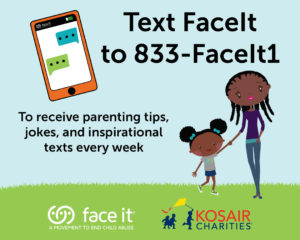
09 Jan Familial Sex Trafficking: Victims Hiding in Plain Sight
By Ginny Sprang, Ph.D., Professor of Psychiatry and Executive Director, University of Kentucky Center on Trauma and Children
On January 7, 2020, Governor Andy Beshear proclaimed January as Human Trafficking Awareness Month in Kentucky.
In 2011, President Barack Obama found a way to focus our efforts toward eliminating modern day slavery by issuing a Presidential Proclamation declaring every January, Human Trafficking Prevention Month. This January blog, the first of a new decade, shines a light on the familial sex trafficking of minors. This type of trafficking occurs when a family member (the trafficker) gives offenders sexual access to victims or pornography in exchange for something of commercial value (e.g. drugs, money,..)1. The Counter Trafficking Data Collaborative (CTDC) operated by the Institute of Medicine reports that almost half of child human trafficking cases began with some family member involvement.
In some cases, family members unwittingly involve their children in exploitive situations, enrolling them in education or training opportunities that are fronts for labor or sex trafficking operations. Unfortunately, the CTDC reports that in 36% of human trafficking cases, children/youth were intentionally sexually exploited by family members looking for a payoff in the form of drugs, money, or something else of value. In a recent study, 64% of these traffickers were mothers, who were assisted by a nonrelative trafficker, and in 82% of these cases, drugs were the currency used to profit from the exchange2. Unfortunately, poverty, socio-environmental stressors, and the opioid epidemic have created an environment of desperation in many Kentucky families, leaving some children/youth vulnerable to this form of sexual exploitation.
Familial sex trafficking is uniquely harmful to those affected. Commercial sexual exploitation by an adult family member violates a most sacred trust, especially when it breaches the parent-child relationship. Children have a reasonable expectation of care, protection and security by their caregivers and a shattering of these assumptions can have profound effects on one’s health, well-being and relationships throughout their lives.
While the Adverse Childhood Experiences Study3 underscores the negative effects of trauma exposure and adversity throughout life, children and youth who endure these familial violations may experience Complex Posttraumatic Stress Disorder. This traumatic stress condition is characterized by the standard features of PTSD (re-experiencing, avoidance, alterations in cognitions and mood, alterations in reactivity and arousal), along with significant affective disturbance, negative self-concept and chronic, interpersonal and relational problems 4 .
For sex trafficking victims, high rates of suicidality, self-harming behavior, dissociation and sleep disturbance may be present2. These harms may not just be related to the sexual nature of the offense, as higher rates of disturbances have been noted in sex trafficking victims, compared to those who have been sexually abused 5. This suggests that involvement in sex trafficking inflicts harms over and above those imposed by sexual abuse alone.
Victims of familial sex trafficking have been described as youth who are “hiding in plain sight”6. Indeed, according to a recent study2, those involved in familial sex trafficking have:
– involvement in the child welfare system, often with referrals/substantiations of neglect
– history of presenting at health and emergency departments with sexually transmitted diseases and injuries
– excessive absences from school
– law enforcement or juvenile justice involvement related to status or drug related offenses
– contact with homeless shelters or other social service organizations as runaways
What Can You Do?
- Enhance your skills at detection by learning about “red flags” that may indicate involvement in sex trafficking, remembering that a parent or caregiver may be the trafficker
- Use evidence-based tools to screen for involvement in sex trafficking. Remember, not all youth understand or characterize their activities as abusive. See one example here.
- Label cases of familial sex trafficking correctly so that staffing, workforce development and service delivery can be tailored to fit the need. Too often, cases of child sex trafficking are labeled as neglect, sexual abuse or understood as status offenses, hindering appropriate service mapping.
- Familiarize yourself with the Safe Harbor Laws in Kentucky and the protections afforded to victims of sex trafficking
- Funding for training on the detection and response to all forms of sex trafficking for family and juvenile court judges, child welfare workers, department of juvenile justice staff, community mental health providers and law enforcement officers is needed so that the promise of the Safe Harbor legislation can be fully realized and children and youth can receive the services they need to be safe and recover.
All adults in Kentucky are mandated reporters of child abuse and neglect. Report suspicions of children involved in the commercial sex trade to the Department for Community Based Services at 1-877-KYSAFE1 and to local law enforcement. Other concerns about possible trafficking activities should be reported to the National Human Trafficking Hotline at 1-888-373-7888.
References:
- Linn, K. (2016). Typologies: Familial trafficking, Exploit No More, https://www.exploitnomore.org/blog/typologies-familial-trafficking
- Sprang, G. & Cole, J. (2018).Familial Sex Trafficking of Minors: Trafficking Conditions, Clinical Presentation, and System Involvement, Journal of Family Violence, 33, 3, 185-195. https://t.co/oZP7L0cQaL
- Anda, R. F., Felitti, V. J., Bremner, J. D., Walker, J. D., Whitfield, C. H., Perry, B. D., … & Giles, W. H. (2006). The enduring effects of abuse and related adverse experiences in childhood. European archives of psychiatry and clinical neuroscience, 256(3), 174-186.
- Karatzias, T., Shevlin, M., Fyvie, C., Hyland, P., Efthymiadou, E., Wilson, D., … & Cloitre, M. (2017). Evidence of distinct profiles of posttraumatic stress disorder (PTSD) and complex posttraumatic stress disorder (CPTSD) based on the new ICD-11 trauma questionnaire (ICD-TQ). Journal of Affective Disorders, 207, 181-187.
- Cole, J., Sprang, G., Lee, R, & Cohen, J. (2016). The Trauma of Commercial Sexual Exploitation of Youth: Findings from the NCTSN Core Data Set, Journal of Interpersonal Violence, 31,1, 122-146. DOI: 10.1177/0886260514555133
- Hartmann, M. (2019). Familial sex trafficking: a crime against children hiding in plain sight, Education, https://blog.theexodusroad.com/familial-sex-trafficking-crime-against-children




